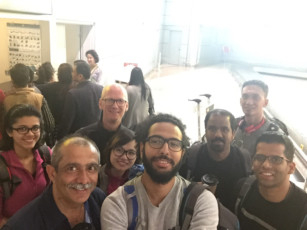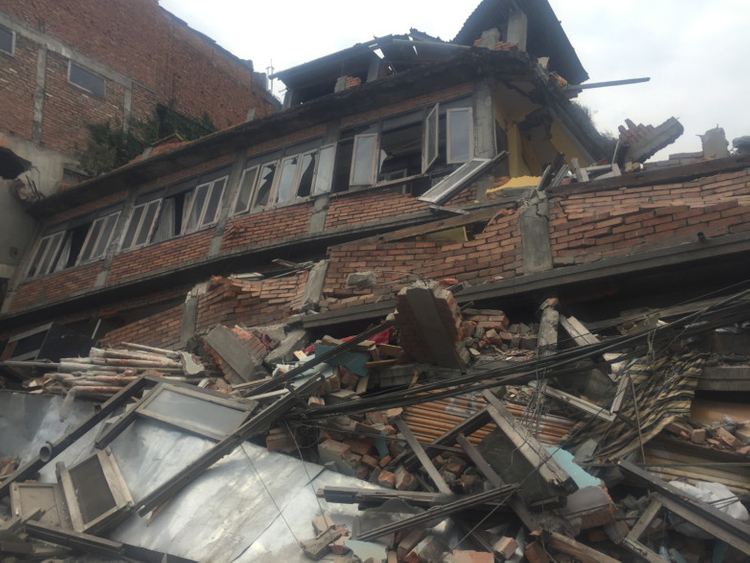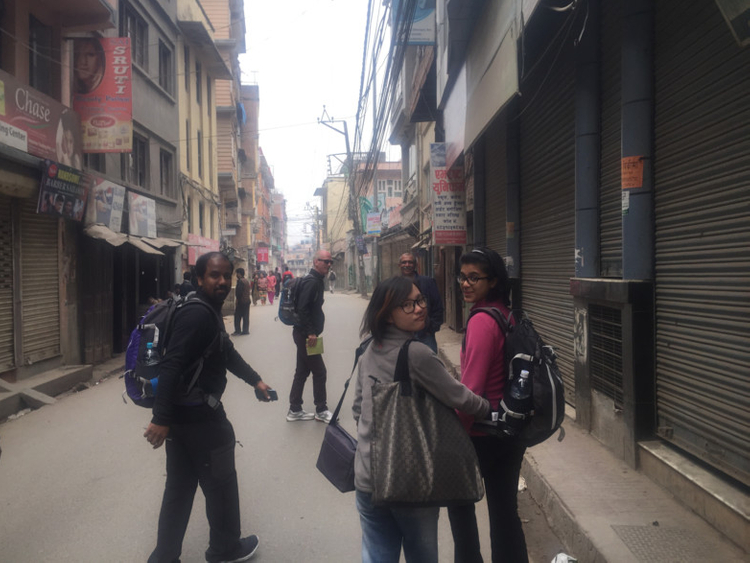
DUBAI As professional trekkers, Gary Fernandes and his team-mates from Murdoch University, Dubai, were as ready as they could possibly be to scale the Everest Base Camp and Kala Pathar. Just two weeks before they left for Nepal on April 25 for a trek organised by Global Institute Middle East (GIME), the Academic Infrastructure Provider for Murdoch University Dubai, Rakesh Wahi, Vice Chairman and Co-Founder of GIME,and his colleague Chris Pilgrim, both of whom climbed Mount Kilimanjaro in 2013, held a briefing on handling emergencies. The group’s families were kept in the loop and their contact details put together.
But when disaster actually struck, it was a complete surprise.
Speaking to XPRESS hours after returning to Dubai on April 27, Fernandes said: ““Nature can inspire shock and awe in equal measure.” The 7.9 magnitude earthquake left us in shock and awe of nature’s ways.”
Thankful to be alive to tell the story, he said the team had just taken a group photo after landing at the Kathmandu airport and was loading its bags on to a four wheel drive when the ground beneath their feet shook – and how. They were eight of them in all – students Ahmed Al Saidy, Maria D’Costa and Xiao Hu and fellow staffers Biju Vetil and Willbert Sayson, besides Wahi, Pilgrim and Fernandes.
“I was inside the vehicle and it didn’t initially strike me that it was an earthquake. The car park was shaking violently and it took a few seconds before the reality of the catastrophe sank in. I rushed out of the car and could hear screams everywhere. I could see buildings and huts in the neighbourhood collapsing while land slid down the hills.”
Keeping calm
But as Fernandes and his colleagues stared in shock, they could hear team leader Wahi telling them to keep calm and move into an open area. When the team eventually began to make its way to the hotel – Tibet Guest Lodge at Thamel – it was difficult to come to terms with the unfolding devastation – dead bodies, buildings in a shambles, huge cracks on the roads and entire histories in ruins.
“Amidst the tragedy, I noticed a brown dog tied to a street railing and another white pup whose leash was fastened to a gate,” said Fernandes.
With nature’s wrath bringing in its wake a rare resilience, people could also be seen combing through the chaos and comforting one another.
The team knew they had to reach out to their worried families too. “We were thankful that we had carried a satellite phone with which we could call our campus in Dubai even under such hostile conditions,” said Fernandes, adding that regular communication had either snapped or got clogged.
Wahi said: “The team showed character, resolve and resilience of the highest order. I am so proud of them. Thanks to all our families and friends for their prayers, faith and calm through this ordeal. Our sincere gratitude to the (staff) in Dubai for providing the ground support and arrangements to bring us back home safely ”
By 8am on April 26, tickets for the team’s return on an Air Arabia flight were secured. As aftershocks continued to rock Nepal, the team walked to the airport, 25km from their lodge. On the way, they gave away medicines, food, torches and other items they thought would come in handy. Their university back home was also arranging to send relief supplies. “Tragedy can strike anywhere and affect anyone. There’s only so much we as humans can do at such times. Yet, as our leadership has drilled into us, the key is to stay cautious, calm and disciplined,” said Fernandes, sharing his takeaway from the trek that never was.













